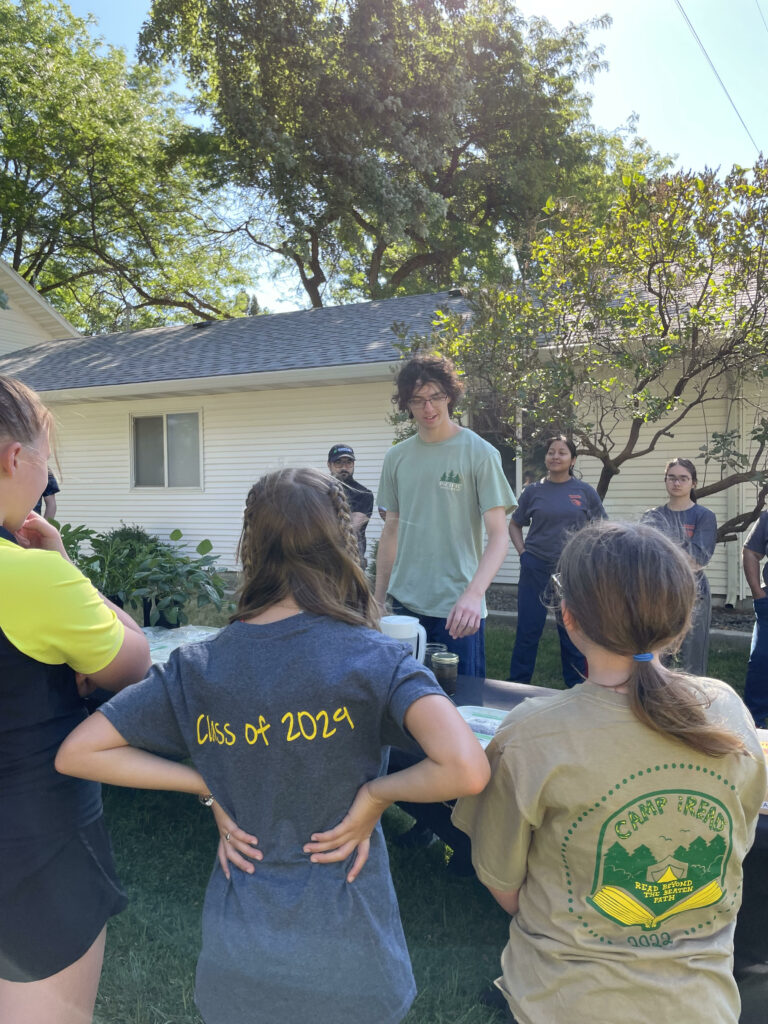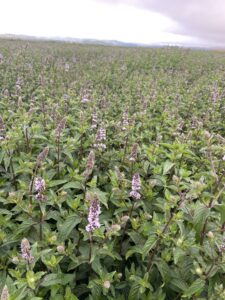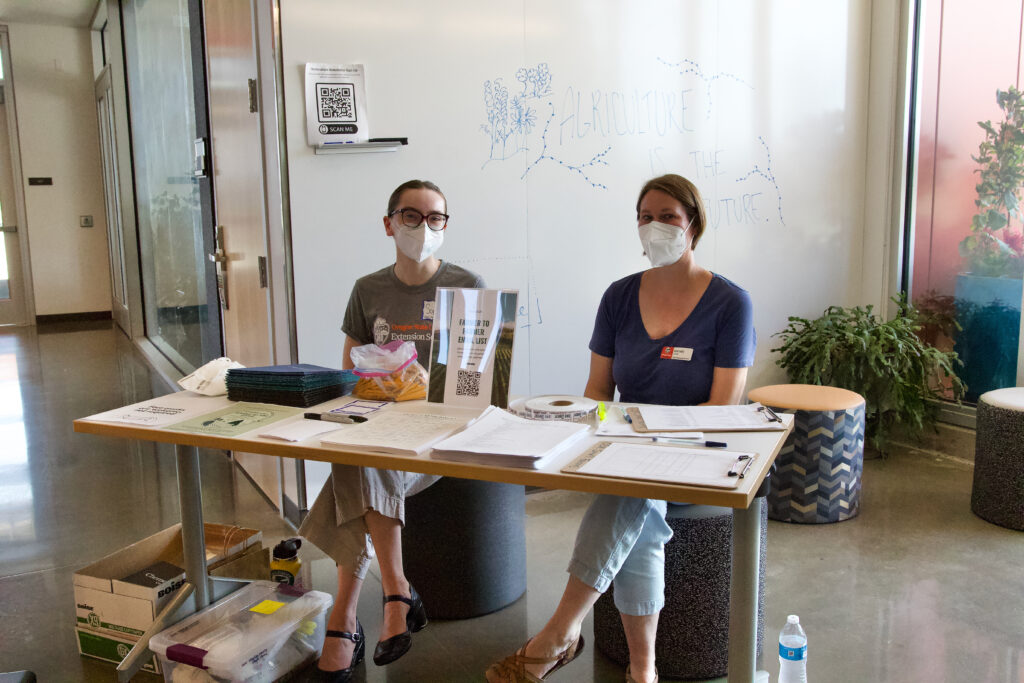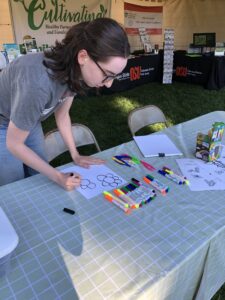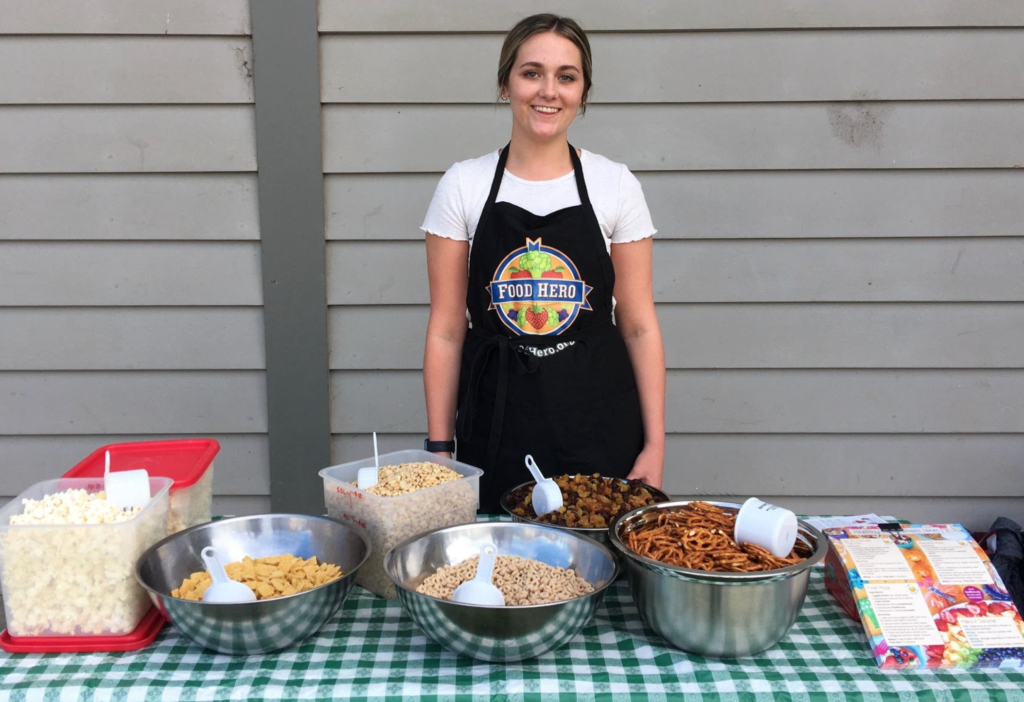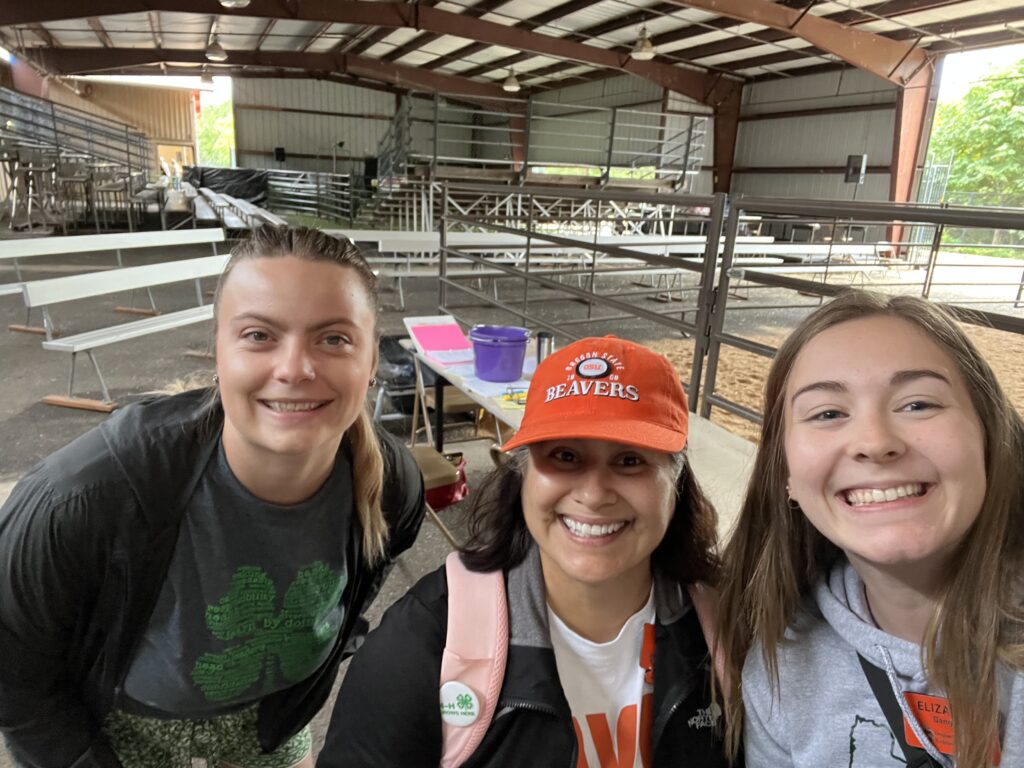Hi everyone. Em Jones here again. I can barely believe it’s been two months since my last blog post. The summer is coming to an end with earlier sunsets as we approach the equinox, about a month away now. I’ve been so busy with my internship I’ve hardly noticed the passing days. I’ve been networking, meeting new people and making lots of friends through various workshops and activities. My main projects have revolved around Small Farm School and the Oregon Mushroom Producers Network.

The OSU Extension Small Farms program has been busy as a bee planning and preparing for Small Farm School. Several classes are filling up quickly but it’s not too late to register. It will be held on Monday, Sept. 12 at Clackamas Community College in Oregon City. Classes include topics like poultry processing, funding your small farm “dream,” and farming with climate resiliency.
We are abuzz right now with volunteer opportunities to support workshops and ensure the day flows smooth as honey. If you’re interested, please reach out to Kelly Streit. Just four hours of volunteering gets you into the Small Farm School for free!
In addition to supporting Small Farm School, I’ve also had the pleasure of facilitating the first meeting of Oregon’s Mushroom Producer Network. This group of folks includes gourmet and medicinal mushroom cultivators from across Oregon. If you or someone you know is cultivating mushrooms, please reach out to me for more details. We have an upcoming mushroom farm tour and have just begun the conversation about the purchasing power opportunities we can embark upon.
While I am sad that my internship and the summer are quickly coming to an end, I am so grateful to have participated in the OSU Extension internship program. My mentor, Heidi Noordijk, has given me a wealth of knowledge and opportunity. She is truly a resource librarian and shining example of what the Extension Service is all about. From my time at the Clackamas County Fair to participating in her IPM class, I can honestly say she truly cares about and authentically supports the farming community for the benefit of us all.
As fall approaches mushroom growing will be at a peak and this small farmer looks forward to continuing their education with Oregon State University as well as continuing to learn from and partner with the Extension Service.



